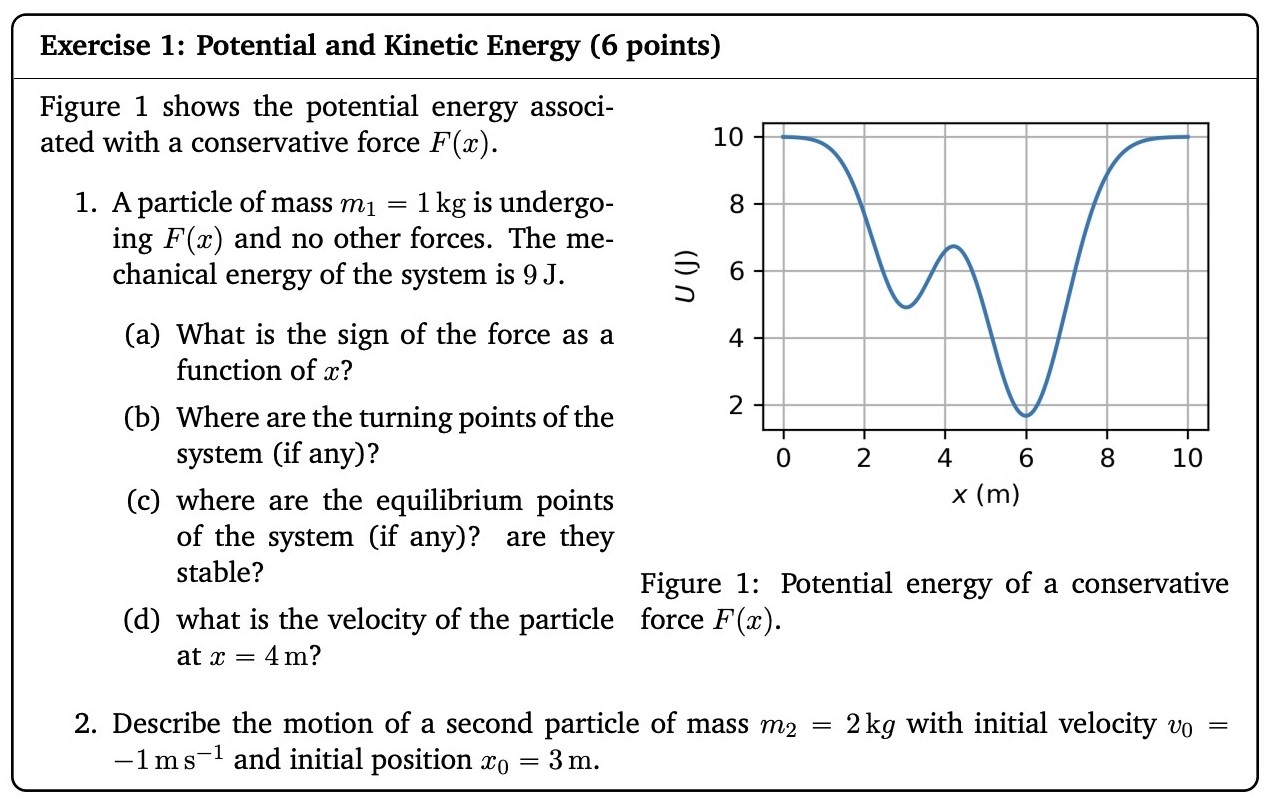Figure 1 shows the potential energy associated with a conservative force F(x). A particle of mass m1 = 1 kg is undergoing F(x) and no other forces. The mechanical energy of the system is 9 J. (a) What is the sign of the force as a function of x? (b) Where are the turning points of the system (if any)? (c) where are the equilibrium points of the system (if any)? are they stable? Figure 1: Potential energy of a conservative (d) what is the velocity of the particle force F(x). at x = 4 m ? Describe the motion of a second particle of mass m2 = 2 kg with initial velocity v0 = −1 ms−1 and initial position x0 = 3 m. Exercise 1: Potential and Kinetic Energy (6 points)
